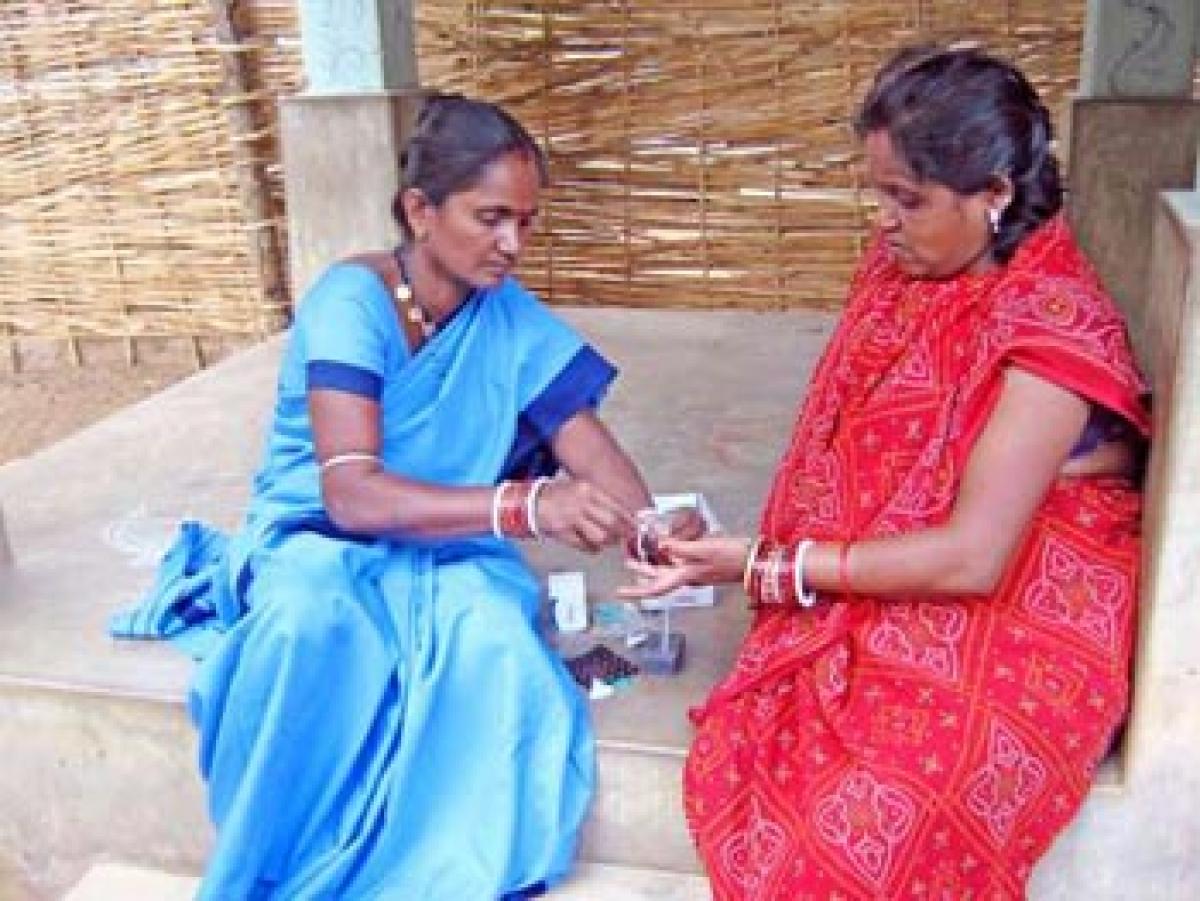Live
- New AP tourism policy hailed
- Village that gave land for Suvarna Vidhana Soudha, a picture of apathy
- What’s The Matter At Hand?
- Pollution levels continue to soar in Yamuna
- 540 touts held for duping passengers at IGI Airport
- Keen to bring Sports Bill in Budget Session: Mandaviya
- HC to hear plea against Kejriwal's bail in Jan
- SC grants bail to two in Waqf Board money laundering case
- Is ‘Deep State’ threat real or just a bogey?
- Sisodia not to report to police twice a week: SC
Just In

Washed out bridges, absence of roads and uncertainty of reaching destinations deep in the forest, do not come in the way of ASHA workers in their effort to provide precious health services to ethnic tribes in Arunachal Pradesh.
Anpum (Arunachal Pradesh): Washed out bridges, absence of roads and uncertainty of reaching destinations deep in the forest, do not come in the way of ASHA workers in their effort to provide precious health services to ethnic tribes in Arunachal Pradesh. Till a decade ago, un-staffed Public Health Centers (PHCs) in this corner of India often led to the deaths of two-three tribesmen of the Adi clan every week.
But the situation started improving after the state government handed over 11 of its PHCs to the Karuna Trust, an NGO, under the public-private partnership model to ensure better health services around six years ago. Now, the entire task of providing healthcare at the PHCs has been entrusted to the efficient hands of trained ASHA (Accredited Social Health Activist) workers. And the results are visible.
Such has the dependence on ASHA workers grown over the years, that their absence could possibly push the tribes inhabiting the Anpum forested area of Arunachal Pradesh back to what existed earlier. Every time ASHA worker Kenjir Perme (name changed) is tasked with immunising children in a far off village, she prepares herself to tackle the tough hurdles she has to overcome to reach her destination.
Covering miles on foot through muddy roads that pass through deep forests full of wild animals, waiting for hours to cross a river on boat, and then uncertainty of being able to return home, is what she has to confront every time. The presence of an ambulance at the PHC meant for taking ASHA workers to their destinations hardly matters, as often unexpected downpours play foul.
Once stuck in the deep muddy roads, the ASHA workers have to wait for hours before being rescued by a tractor, a rarely available transport here. "This is a regular phenomenon here and we are quite used to it. Just because there is virtually no mode of transportation we cannot afford to ignore the health of the vulnerable tribespersons living in this forest area, and providing them medical services on time," Perme, who is among a few ASHA workers at the Anpum PHC operated by Karuna Trust, told the visiting IANS correspondent.
Though the PHC also has two other sub-health centers, at a distance of at least 15-20 km, the task of ASHA workers remains the same delivering health services, including immunisation and drug delivery and reproductive and child health programmes, to all the villages in the area. Locals say the healthcare has got a new lease of life after the PHC was handed over to the Karuna Trust. "Earlier, our people would die of minor health problems, due to lack of medical care at the PHCs. But now, we are happy at the healthcare being provided," Robin Tayeng, a local Adi tribesperson, told IANS.
With an area of 83,743 sq km and a population of 14 lakh, Arunachal Pradesh has one of the toughest geographical terrains in India. Even today about 70 per cent of its area is inaccessible and it takes days to reach from state capital Itanagar. In the initial years, Karuna Trust also received funds from the Population Foundation of India to strengthen its medical care facilities in the PHCs. "To reach some of our PHCs one has to trek, walk on foot for miles as no roads are available. But we have trained our ASHA workers to overcome all such hurdles," Annop Sarmah, co-ordinator for Karuna Trust NE, said.
The state's tribal population has benefited immensely from the handing over of the PHCs to the NGO, and they are now provided with services like family planning and immunisation. Today ASHA workers under Katuna Trust ensure that all the newborns are immunised against all major diseases. Efforts of the ASHA workers have helped bring down the Total Fertility Rate to 2.1, from a previous high of over 3.
By Rupesh Dutta

© 2024 Hyderabad Media House Limited/The Hans India. All rights reserved. Powered by hocalwire.com







